Some Notes on Speed ⚡
Plus: Reflections on Short Story Long
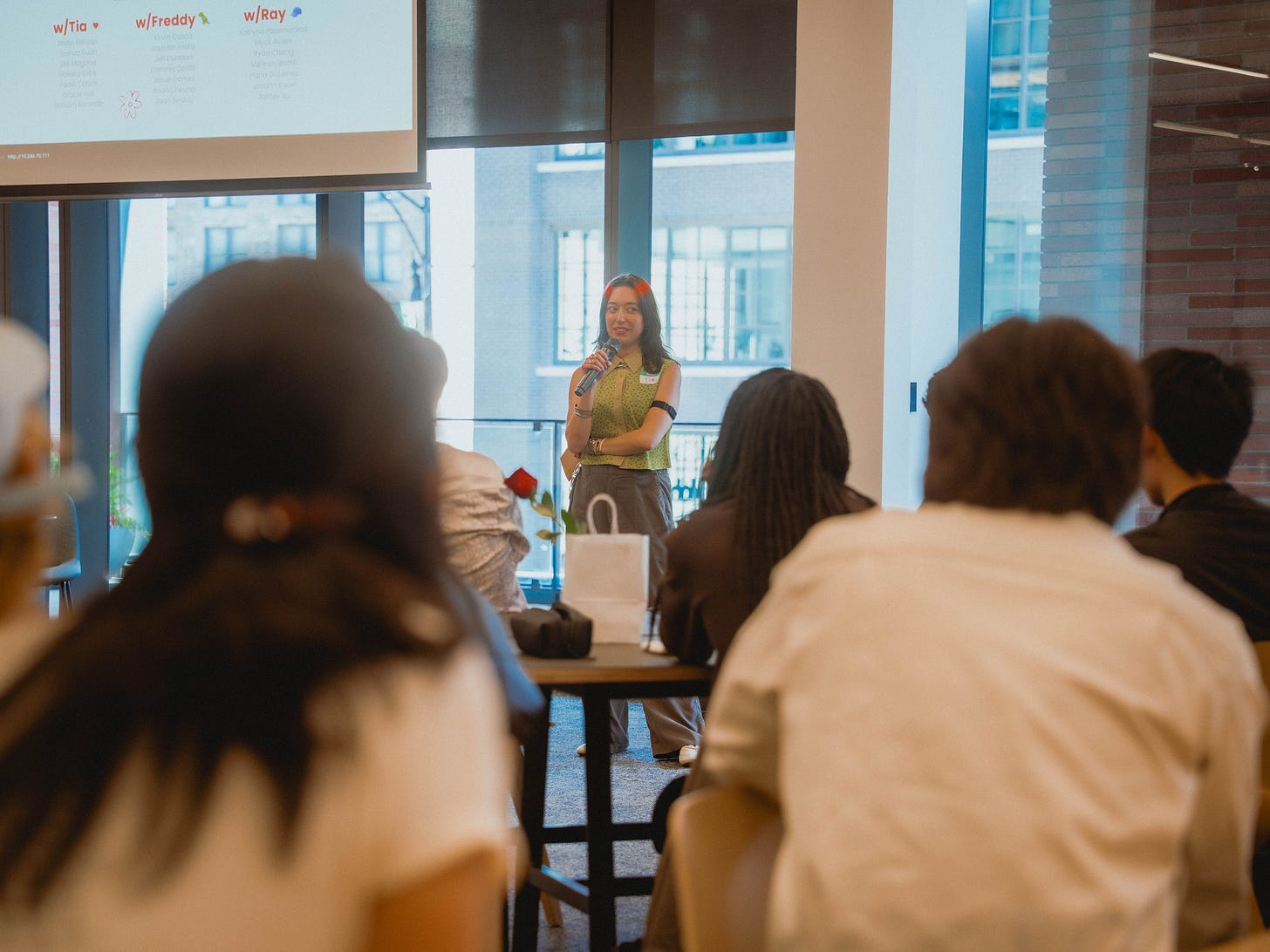
blog.sixty-five // It’s been a week since we hosted our full-day storytelling event, Short Story Long.
Personally, I find event production to be an all-encompassing thing. You spend all this time ideating, communicating, preparing, and then…it happens. Day-of logistics add a layer of stress, but ultimately, what makes it all worth it is looking around at a room full of people, brought together by shared interests and goals.
While the work may move on, and we all return to our “normal” lives, the glow from that room lasts for a long time. Which is why I figured it was worth reflecting on the event, one week later.
Read on for another edition of “Five Things I Think (I Think).” And if you missed our Short Story Long recap, check it out here.
— NGL
P.S. Last blog, we reviewed Elle Mills’ film Don’t Forget About Me for our first edition of Neighborhood Watch. You can read it here.
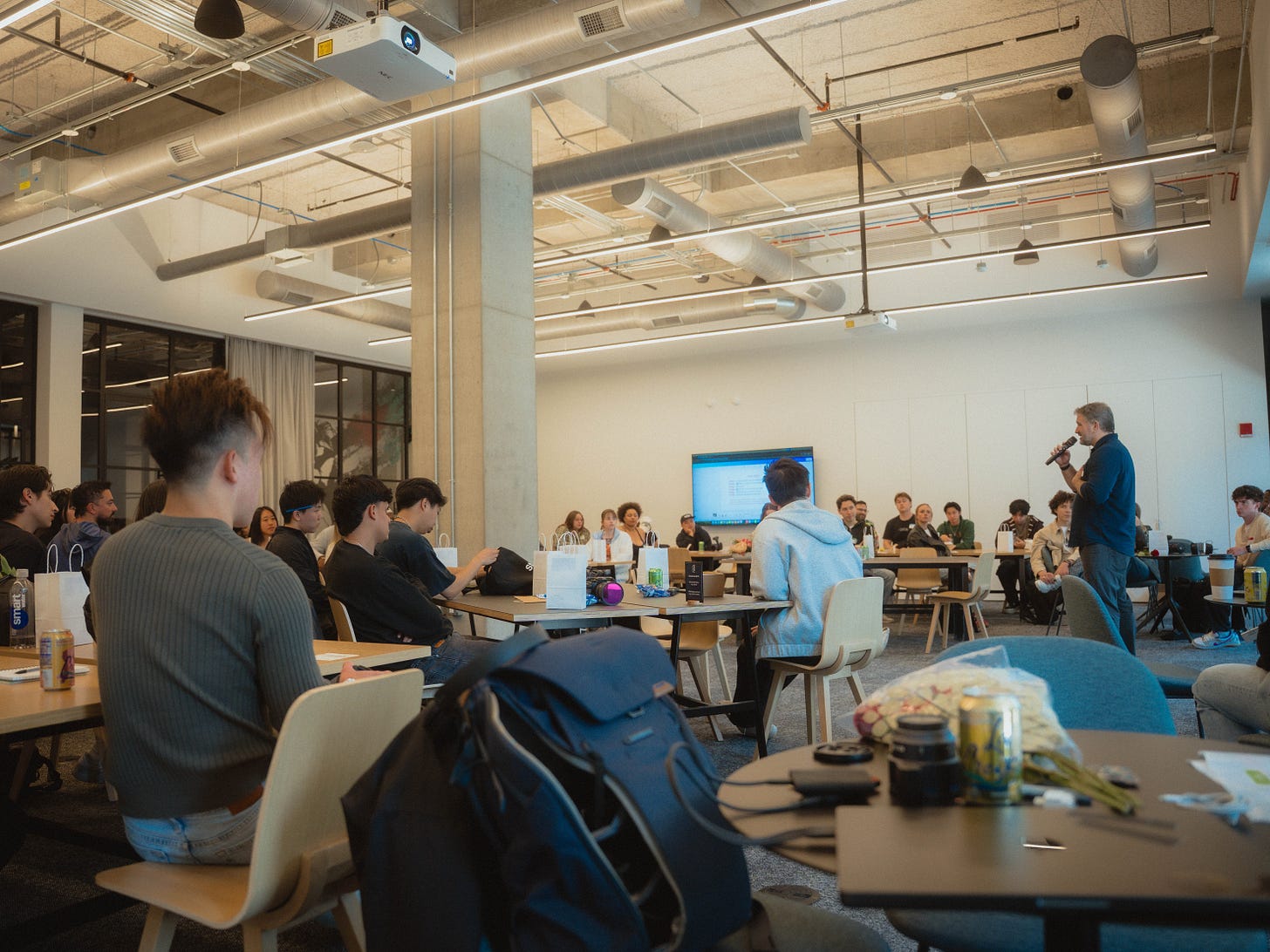
One :: I think there’s nothing that brings us together more than telling our stories. One of the first things that Scott Whitehair (our workshop leader, and an award-winning storyteller in his own right) encouraged us to do is embrace vulnerability.
It helped that he kicked off the day by telling a story, a story about his own creative insecurities. Scott is from Pittsburgh, and he likes to joke that he looks less like an artist and more like a linebacker. He spoke about the first time he brought a friend to a poetry night at a hometown bar, pushing his friend (and himself) while proving that this was for them, too.
Later in the day, after giving attendees time to practice with their neighbors (and write as they saw fit), we opened up the mic to performances. Given the creative nature of the folks gathered in the room, I’d say I had pretty solid expectations coming in.
But the more I think about it, everyone’s stories blew me away.
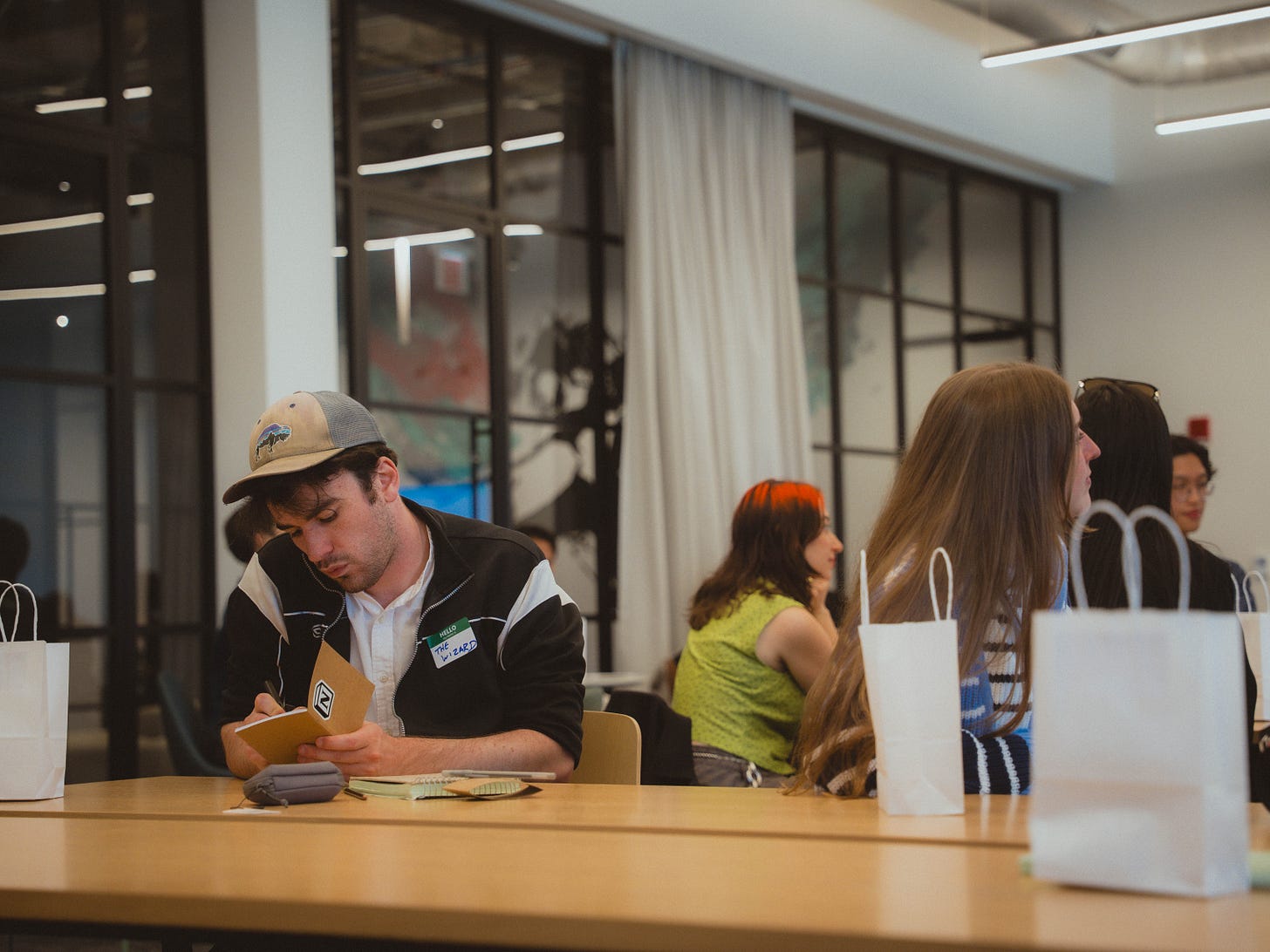
Topics discussed included life, death, family, religion, gender, relationships, mental health, geopolitics, and Pokémon Cards. People genuinely opened up—to a room full of nearly sixty peers, at that—even as most of us had just met each other mere hours earlier.
No one force-fed their vulnerabilities. They were a feature, not a bug.
It was a magical thing to witness. And while people came to the event for various reasons (whether that be storytelling advice, or simply meeting other creative folks) I’d like to believe we all left with a similar realization:
In a time when we’re inundated with so much clutter, storytelling is a powerful vessel to break down barriers, to listen and learn about those around us—and, ultimately, the world.
Two :: I think you should check out the stories shared at this event. Some of you have either messaged us or posted online that last Saturday inspired you to put your stories out into the world.
There are too many to count, but I’d like to highlight our friend Tia Wilson. Tia is a creator, marketer, and speaker who told a story about breaking into an old woman’s home when she was fifteen. The odyssey included a lot of key topics. Neighbors, Mormonism, undiagnosed OCD. Cookies.
Her tale captivated the Short Story Long audience, and a couple days later, Tia launched her new YouTube channel with an adapted version of the story. You should watch it!
Three :: I think building in Chicago isn’t easy—which makes it all the more worthwhile. I’m estimating, but roughly half of the event attendees were based here. For many coming in from out of town, though, it was their first time visiting the Windy City.
Which is always a surprise for me. I’ll shout it from the rooftops: Chicago has the third-biggest population of any city in the country, and Cook County is the second-largest county.
With that, there are so, so many talented creative folks here, often flying under the radar (call it coastal bias). But a smaller spotlight does lead to less investment in the creative community, which means less people and resources flowing through the city—forget about ever setting up shop here outright.
That doesn’t mean there aren’t people putting in the work, though. One example: Real Ones, an interview show and management company that brands itself as a “Chicago Music Discovery Platform,” focuses specifically on highlighting underground artists in the city. Gayun Cannon, a multi-instrument singer/songwriter who performed at our event, was actually referred to us by Real Ones cofounder Ben Moskow.
Connecting the dots and building bridges is everything; a rising tide lifts all boats. And whether it was the music, the sights, or the people, I’d like to think everyone who did visit enjoyed themselves—and will come back soon enough.*
Showing off Chicago is a worthwhile endeavor. Yet I’m also quite bullish on continuing to build our creative neighborhood for those who are here, too. One Short Story Long attendee drove over two hours from Madison just to stop by, citing it was hard to find stuff like this elsewhere in the Midwest.
Hearing that makes me believe we’re on the right track.
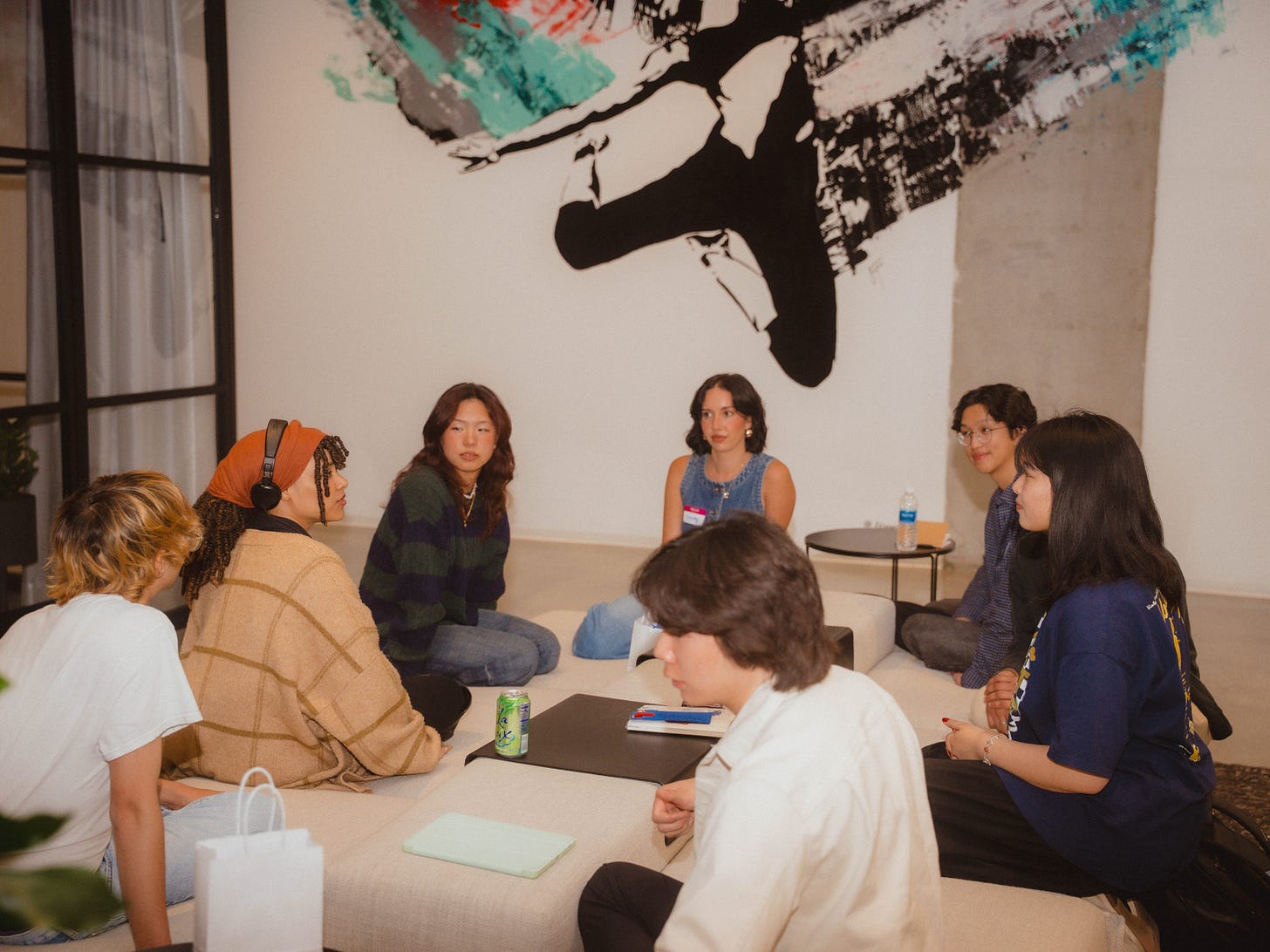
Four :: I think building a publication and hosting big events is easier said than done. There are creators out there who make stuff, upload it, then simply go on with their day.
On the flip side, there are event producers that spend all their time promoting their slate—making it happen, then moving onto the next one.
That’s not to say that creators can’t pop out in person, or producers don’t tell stories in their marketing. Yet committing energy to a big event—then flipping around to sit down and write, or edit—is a real undertaking for a small team.
As all the text above should indicate, though, we know that both paths are important, and they certainly don’t individually exist in a vacuum. We know who we’re writing for because we can picture those rooms; simultaneously, there’s a good chance the people in those rooms are there because of the beacon we’re putting out.
The way I view it, we’re still early—but the stories we’re telling and the gatherings we’re hosting are already creating real impact in people’s lives. How lucky are we to be able to say that?
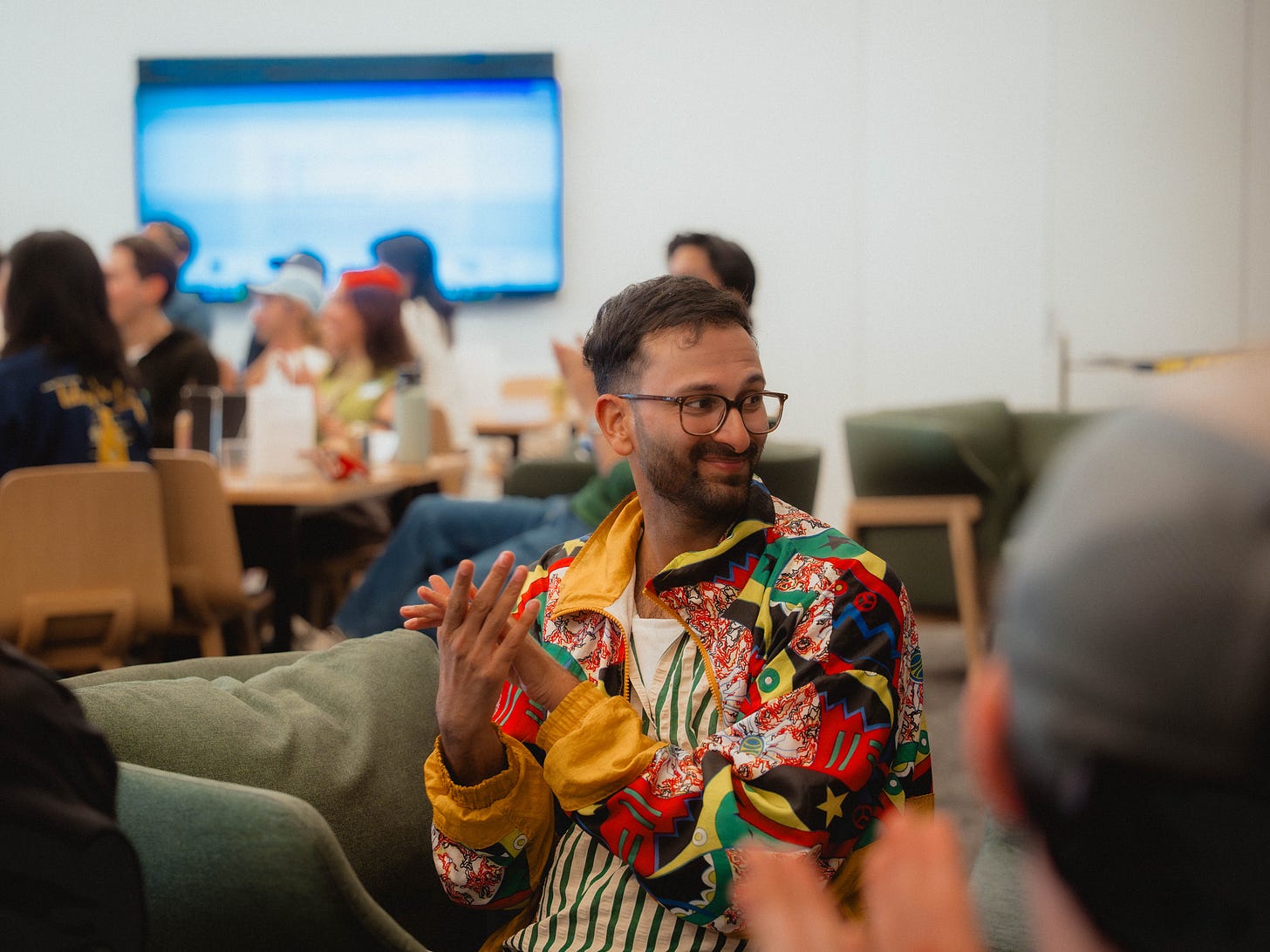
Five :: I think speed is a highly underrated tool in any creative’s toolbox. Bit of a shift here for this last mini-essay, but there are certain professions where the benefits of speed are innately understood—think reporting, for one.
NBA insider Shams Charania (and his mentor before him, Adrian “Woj Bomb” Wojnarowski) gets paid the big bucks to break news on basketball’s biggest moves. Earlier this year, Shams was the first person to report that the Dallas Mavericks were trading superstar Luka Dončić to the Los Angeles Lakers, a move that lit the NBA world on fire—and quickly prompted shell-shocked Dallas fans to divulge in massive conspiracy theories, Always Sunny-style.
But speed applies to other disciplines, too. Look no further than Mountainhead (2025), the new made-for-HBO movie by Succession creator Jesse Armstrong.
Armstrong began writing the film—which follows four billionaires who watch the world burn from their phone screens, all while they vacation in the mountains—in January of this year. By March, his team began shooting it; Mountainhead subsequently released on May 31.
For those of us who create and upload our work independently online, five months might sound like an eternity. Yet the scope of this project was not cut-and-dry. The ensemble cast nabbed a big name in Steve Carell and a hot up-and-comer in Corey Michael Smith; production involved scouting and filming in the slopes of Park City, Utah. That type of speed combined with that level of ambition is unheard of these days in Hollywood.
The result? Maybe not a perfect film, but a film that touches on extremely relevant topics at this moment in our culture nonetheless. Clashes over ethical uses of AI and casual conversations over who among the group should run Argentina (after society collapses, of course) abound. The skirmishes start when the billionaires trade jabs at each other from afar over podcast appearances, yet the intra-group conflict quickly devolves into actual physical violence.**
“The tech world changes so quickly…I was keen to write [Mouintainhead] and for people to see it in the same sort of bubble of time,” Armstrong told The Hollywood Reporter. He noted that a lot of his research for a recent book review included listening to tech-bro podcasts like All In; the inspiration to turn tangential ideas from the review into something grander became “like an earworm.”
As someone who leans towards longform pieces that take months at a time to write, there’s a lesson here in sometimes riding the creative wave, striking while the iron’s hot. Mountainhead doesn’t reach the highs of Succession, but Armstrong’s perspective is still so uniquely fresh right now, making his new film more than worth the watch.
Thanks for reading! Shoot us a reply, comment, or DM if anything resonated with you in particular—we respond to them all.
* Our next Block Party, which celebrates the release of our new magazine, will be Saturday, July 19. See ya in Chicago!
** In other words, kinda wild this movie came out literally a week before Trump and Elon’s (very public) breakup.




